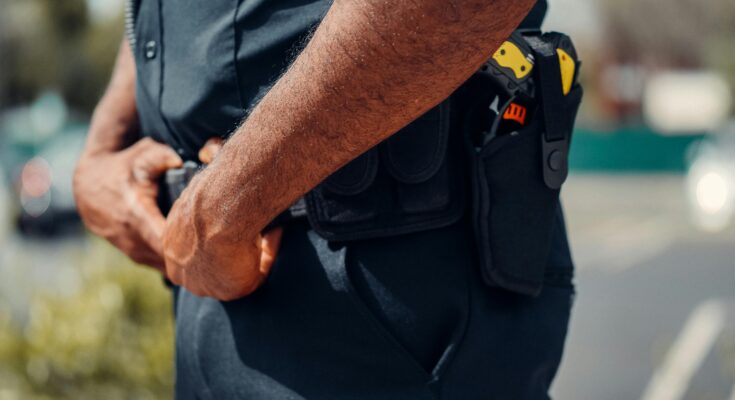With growing demand for safety across businesses, residential areas, public events, and tourist destinations, security guard jobs in Italy have become a popular employment option for both locals and foreigners. Italy’s thriving tourism industry, high-end retail stores, luxury hotels, embassies, and private companies all require well-trained security personnel to maintain safety and order.
For foreign job seekers, working as a security guard offers a stable job, decent income, and the chance to live and work legally in Italy. This complete guide will walk you through everything you need to know about finding security guard jobs in Italy, visa requirements, salaries, qualifications, and application tips.
Visa and Work Permit Requirements for Foreign Security Guards
If you are a non-EU citizen, you will need a valid work visa to legally work as a security guard in Italy. The most common visa type for such employment is the Subordinate Work Visa (Lavoro Subordinato), which requires that you first secure a job offer from an Italian employer.
Once you receive a job offer, your employer will apply for work authorization (Nulla Osta) on your behalf. After the authorization is granted, you can apply for the work visa at the Italian consulate or embassy in your home country. Upon arrival in Italy, you’ll need to apply for a residence permit (Permesso di Soggiorno) within 8 days to fully legalize your stay and work.
It is important to mention that most security companies prefer candidates who have legal residency status or existing work permits, especially since security jobs often involve background checks and verification of personal records.
Types of Security Guard Jobs Available
Security guard positions in Italy are quite diverse, depending on the industry and the location. Some of the common types of jobs available include:
1. Corporate Security Guards
These guards work for businesses, banks, office buildings, and corporate headquarters to monitor and protect company assets, employees, and visitors.
2. Hotel and Hospitality Security
Hotels and resorts in tourist-heavy cities like Rome, Venice, and Milan often hire security personnel to ensure guest safety, manage entry points, and handle emergencies.
3. Retail Security
Luxury stores, shopping malls, and high-end boutiques regularly hire security guards to prevent theft, monitor customer behavior, and assist with crowd control.
4. Event Security
Concerts, sports events, exhibitions, and conferences often require temporary or part-time security staff to manage large crowds and maintain public order.
5. Residential Security
Private residences, apartment complexes, gated communities, and embassies employ security guards to monitor entrances, patrol premises, and ensure safety for residents.
6. Transportation and Airport Security
Some positions may involve monitoring passengers, managing baggage areas, and ensuring the safety of public transport hubs and airports.
Where Are Security Guard Jobs Available in Italy?
Security guard positions are widely available across Italy, but major cities and tourist destinations offer the most opportunities.
-
Rome: Embassies, luxury hotels, tourist attractions, government buildings.
-
Milan: High-end fashion stores, corporate offices, international events.
-
Venice and Florence: Hotels, museums, and tourist-heavy areas.
-
Naples and Turin: Residential security and transportation hubs.
-
Smaller towns and coastal areas: Resort security, residential communities, and event staffing.
Basic Requirements to Work as a Security Guard
To work as a security guard in Italy, you must meet several basic requirements. These include:
-
Valid Work Permit & Visa: Legal authorization to work in Italy.
-
Clean Criminal Record: Most employers will conduct background checks.
-
Language Skills: Basic knowledge of Italian is usually required for effective communication.
-
Physical Fitness: The job often involves standing for long hours, patrolling, and responding to emergencies.
-
Training Certification: Many security companies prefer candidates who have completed professional security training courses (Corso di Formazione per Guardie Giurate).
-
Driving License: May be required if the position involves mobile patrol duties.
How to Find Security Guard Jobs in Italy
Searching for security guard jobs in Italy can be done through multiple channels:
1. Online Job Portals:
Websites such as Indeed Italia, Subito.it, Monster.it, Jobrapido, and LinkedIn regularly list security job openings.
2. Security Company Websites:
Many private security firms in Italy advertise vacancies directly on their websites. Some of the well-known companies include:
-
Securitalia
-
Italpol
-
Battistolli Group
-
Sicuritalia
-
All System
3. Recruitment Agencies:
Agencies like Adecco, Randstad, Manpower, and Gi Group also help place candidates in security roles.
4. Networking and Referrals:
Many foreigners find jobs through personal contacts, expat groups, or by directly visiting security companies and submitting their applications.
Salary Expectations for Security Guards in Italy
The salary for security guards in Italy varies depending on experience, location, and the specific job role. On average:
-
Entry-level positions may offer monthly salaries between €1,100 and €1,400.
-
Experienced guards with specialized skills or certifications can earn between €1,500 and €2,000 per month.
-
High-end or specialized roles (such as VIP protection or embassy security) may offer salaries upwards of €2,500 per month.
Salaries in major cities like Rome and Milan tend to be higher compared to smaller towns due to the cost of living and demand for experienced personnel.
Cost of Living for Security Guards
While salaries for security guards can provide a comfortable life in Italy, it’s important to understand the cost of living. Rent for a one-bedroom apartment in city centers ranges from €600 to €1,000 per month, while apartments outside city centers can be more affordable.
Additional expenses include utilities (€100–€200), groceries (€200–€350), transportation (€30–€80), and personal expenses. Security guards often manage their finances better by sharing accommodations or living slightly outside of expensive urban centers.
Working Conditions and Responsibilities
Security guard jobs in Italy generally involve long shifts, often between 8 to 12 hours. Work schedules may include night shifts, weekends, and public holidays. Guards are responsible for monitoring premises through patrols, security cameras, and alarm systems.
Responsibilities typically include:
-
Controlling entry and exit points.
-
Monitoring surveillance equipment.
-
Reporting suspicious activities.
-
Writing daily reports.
-
Responding to emergencies.
-
Coordinating with police or emergency services when necessary.
Guards must remain alert at all times, follow company protocols, and display professionalism while interacting with clients or the public.
Language Requirements
While some private companies may accept basic English for certain roles, most security guard jobs require at least a working knowledge of Italian. Being able to communicate effectively with coworkers, supervisors, and the public is critical in this line of work. Learning Italian significantly increases your chances of employment and career advancement.
Frequently Asked Questions
Can foreigners apply for security guard jobs in Italy?
Yes, as long as you have a valid work visa, meet legal requirements, and pass background checks.
Is previous security experience necessary?
It depends on the employer. Entry-level jobs may offer training, while high-end positions often require prior experience and certifications.
Is a criminal background check required?
Yes, most security companies conduct thorough checks before hiring candidates.
Do I need to speak Italian?
Yes. Italian language skills are usually mandatory for effective communication and job performance.
Are there opportunities for career growth?
Yes. With experience, additional training, and certifications, you can move into supervisory roles, VIP protection, or specialized security services.
Conclusion
Security guard jobs in Italy offer foreign workers a stable and respectable career path in one of Europe’s most beautiful and historically rich countries. With growing demand across multiple industries, security jobs provide not only steady income but also opportunities for long-term residency and career advancement.
By meeting visa requirements, preparing the right documents, gaining proper training, and learning the Italian language, you can successfully build your security career in Italy and enjoy all the personal and professional benefits that come with it.



